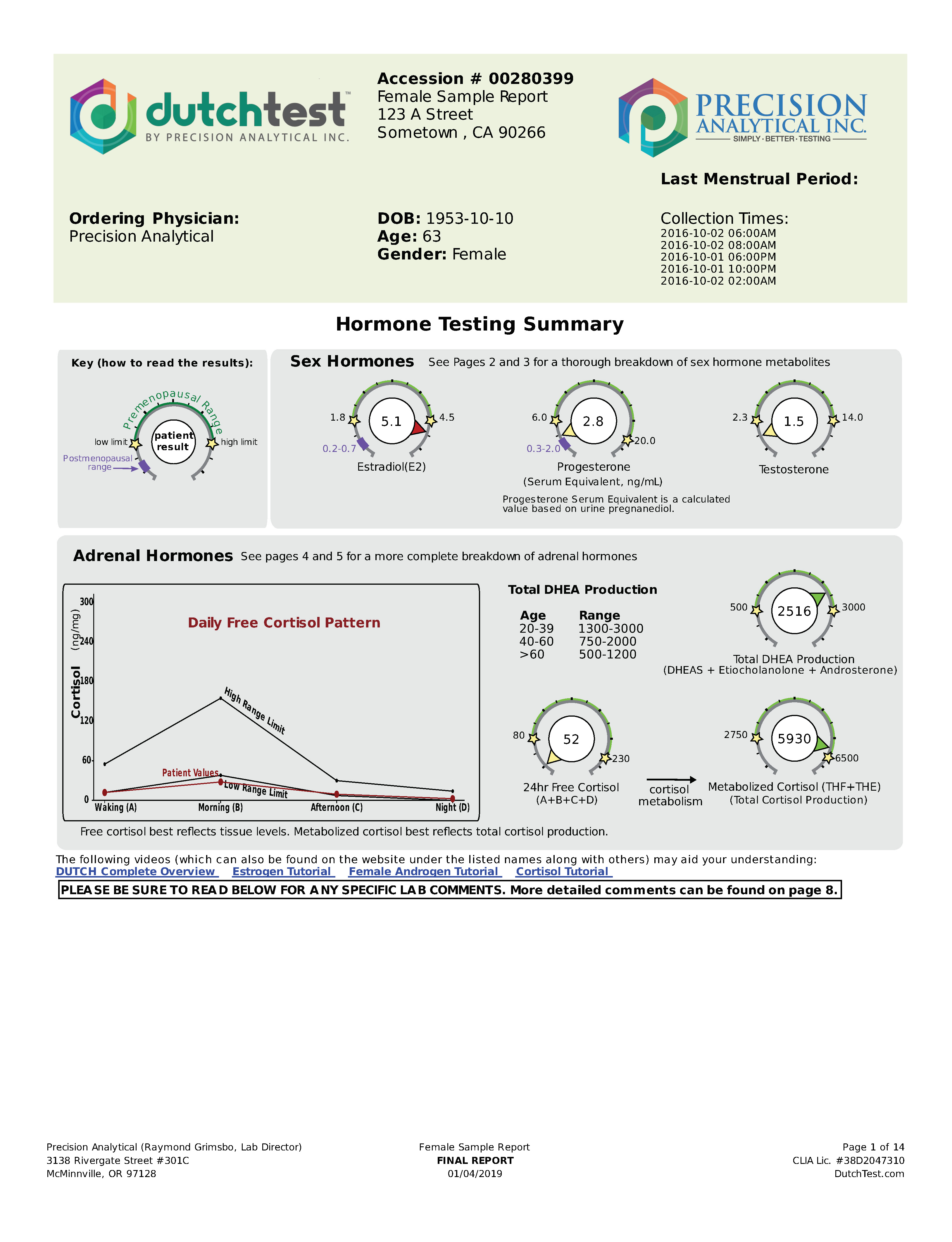The Dutch test has been gaining traction among health enthusiasts and professionals alike, but is the Dutch test legitimate? As many turn to it for insights into their hormonal health, it's essential to delve deeper into its credibility. This article aims to provide a comprehensive overview of the Dutch test, its purpose, methodology, and the reliability of its results. Understanding the legitimacy of the Dutch test requires a closer examination of its scientific backing and how it compares to traditional hormone testing methods. With more people seeking tailored health solutions, the demand for innovative testing methods like the Dutch test is on the rise.
In this article, we will explore various aspects of the Dutch test, including its origins, how it works, and what the results mean for individuals looking to optimize their health. Furthermore, we will address some common questions surrounding the Dutch test, providing readers with a well-rounded understanding of its legitimacy and potential benefits. By the end of this article, you will have a more informed perspective on whether the Dutch test is a reliable option for hormone testing.
The Dutch test, short for Dried Urine Test for Comprehensive Hormones, is designed to provide an in-depth analysis of hormone levels in the body. This non-invasive test involves collecting urine samples at various times throughout the day, allowing for a comprehensive overview of hormone production and metabolism. But does this method hold up against more conventional testing techniques, and can we trust the results it provides? Let's explore these questions further.
What is the Dutch Test?
The Dutch test is a hormone assessment tool that provides a detailed analysis of hormone levels, including estrogen, testosterone, progesterone, and cortisol. Unlike traditional blood tests, the Dutch test uses dried urine samples to measure these hormones, offering a more comprehensive view of hormonal balance over a 24-hour period.
How Does the Dutch Test Work?
To conduct the Dutch test, participants are instructed to collect urine samples at specific intervals throughout the day. These samples are then dried and sent to a laboratory for analysis. The laboratory evaluates the samples to determine hormone levels, which are presented in a detailed report highlighting key insights into hormonal health.
What Hormones Does the Dutch Test Measure?
- Estrogen (including estradiol, estrone, and estriol)
- Progesterone
- Testosterone
- Cortisol
- Dihydrotestosterone (DHT)
- Melatonin
- Androstenedione
Is the Dutch Test Legitimate for Hormonal Assessment?
When considering if the Dutch test is legitimate, it's essential to examine the scientific research surrounding its effectiveness. Numerous studies have indicated that the Dutch test can provide valuable insights into hormonal health, making it a popular choice among healthcare practitioners.
How Does the Dutch Test Compare to Traditional Hormone Testing?
Traditional hormone testing often relies on blood samples to measure hormone levels. While blood tests can provide a snapshot of hormone levels at a specific moment, they may not reflect variations throughout the day. In contrast, the Dutch test offers a more comprehensive view by measuring hormone metabolites throughout the day, which can reveal patterns and imbalances that may not be captured in a single blood test.
Are There Any Limitations to the Dutch Test?
While the Dutch test has its advantages, there are also limitations to consider:
- Not all hormones are measured in urine, which could lead to incomplete assessments.
- Variability in urine concentration can affect results, necessitating proper sample collection and timing.
- Interpretation of results may require the expertise of a qualified healthcare professional.
What Can You Learn from the Dutch Test Results?
The results of the Dutch test can provide valuable insights into an individual's hormonal health, helping to identify potential imbalances. Some key takeaways from the results may include:
- Understanding estrogen dominance or deficiency
- Identifying adrenal fatigue through cortisol levels
- Evaluating testosterone levels for both men and women
- Assessing overall hormonal balance and metabolic pathways
Who Should Consider the Dutch Test?
The Dutch test may be beneficial for individuals experiencing hormonal imbalances, symptoms of adrenal fatigue, or those looking to optimize their health. It is often recommended for:
- Individuals with irregular menstrual cycles
- Men experiencing low testosterone symptoms
- Women undergoing menopause or perimenopause
- Individuals seeking to improve overall wellness
How Can You Get Started with the Dutch Test?
To get started with the Dutch test, follow these steps:
- Consult with a healthcare provider to determine if the Dutch test is appropriate for you.
- Order the test kit from a reputable laboratory that offers the Dutch test.
- Follow the instructions for urine sample collection.
- Send the samples back to the laboratory for analysis.
- Review the results with your healthcare provider to discuss next steps.
Conclusion: Is the Dutch Test Legitimate?
In summary, the Dutch test offers a unique approach to hormone testing, providing insights that traditional blood tests may not capture. While it has its limitations, the scientific backing and positive testimonials from healthcare practitioners suggest that the Dutch test can be a legitimate tool for understanding hormonal health. Ultimately, whether you choose to pursue the Dutch test will depend on your individual health needs and goals. If you are considering this test, consult with a qualified healthcare provider to determine if it is the right fit for you.
You Might Also Like
Unveiling The Mystery: Aishah Sofey Of LeaksDiscovering The Life And Legacy Of Jeremy Adler
Puffin ASMR Leak: Unveiling The Mystery Behind The Sound
Understanding The Kenner Police Department: Your Guide To Community Safety
Discovering Buona Beef Kenosha: A Culinary Gem
Article Recommendations
- Best Exercise Classes
- Strawberry Desserts No Bake
- Toy Robot Dogs
- All 90 Day Fiance Couples
- Adhd And Gaming
- Issus Battle Map
- Peruvians
- Los Rodeos Airport Tenerife
- Dave Coulier
- How Big Is Corpus Christi


